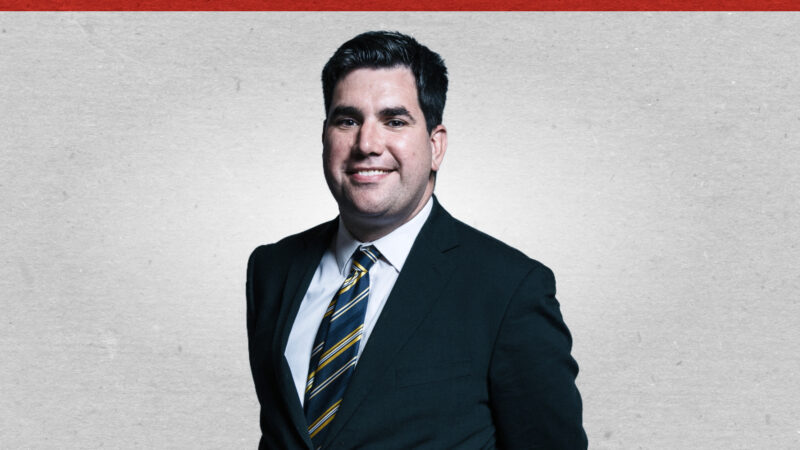
Labour deputy leadership candidate Richard Burgon has vowed to create a “truly democratic” party by implementing ten measures to empower members and by launching a ‘Democracy Review 2.0’.
The Leeds East MP has promised that, if elected, he would seek to change the leadership election rules and make conference votes above a certain threshold binding for the party, LabourList can reveal.
Labour is currently not bound by policy passed at its annual conference – even if motions are passed unanimously. It is the ‘Clause V’ meeting that decides which parts of the party programme are included in the manifesto.
One of Burgon’s proposals would change this situation by setting a threshold for support, above which a conference vote would be sovereign and guaranteed to be included in the next party manifesto.
The deputy leadership candidate also wants to “stop the Parliamentary Labour Party acting as gatekeepers” in the leadership elections, which would mean removing the requirement for MP/MEP nominations.
In the ongoing 2020 leadership election, candidates needed to secure support from 10% of their colleagues before they could proceed to the next stage. This rule led to Clive Lewis being knocked out of the race.
It is understood that Burgon would instead be in favour of all parts of the party being able to nominate, with the nominations of MPs, trade unions and local parties being given equal worth by the party.
Burgon has suggested there should be a guarantee that Labour women’s conference is held annually and separately from annual conference. This year, it is being held on the same weekend and will only be a half-day event.
In a move considered highly controversial by many Labour representatives in local government, Burgon would like to revive the idea of members directly election Labour council group leaders rather than have them chosen by councillors.
He has also put forward the proposal of increasing local party and trade union representation on Labour’s ruling national executive committee. CLP and union reps are considered generally more likely to be on the Labour left.
This reform for the ruling body favoured by Burgon stands in contrast to the main leadership candidates who have all committed to increasing the number of local government NEC members, of which there are currently two.
The deputy leadership candidate has said he would like to see implemented all recommendations in the democracy review established under Jeremy Corbyn’s leadership, and to see a second review launched.
Burgon’s “ten next steps to strength members’ say” are as follows:
- Enable members to select their candidates for elected positions through open selections at all levels.
- Ensure the sovereignty of annual conference and guarantee that all policies achieving an agreed threshold at annual conference into the party’s manifesto.
- Work with CLP and trade union representatives to devise a new policy-making process to replace the national policy forum, with a genuine bottom-up process that harnesses the knowledge and expertise of grassroots members and trade unions and makes much better use of digital engagement.
- Guarantee that a women’s conference with policy-making powers occurs annually and separately from annual conference, and facilitate such conferences for BAME, disabled, LGBT+ and young members where desired.
- Properly resource our equality structures so all oppressed groups have opportunities for proper democratic involvement and can play a full role in the party at all levels.
- Reform the rules on electing Labour’s leadership to stop the Parliamentary Labour Party acting as gatekeepers.
- Direct election by Labour Party members of Labour group leaders to help ensure greater interest and engagement in local government.
- Increase representation for both constituencies and trade unions on the national executive committee.
- A new national student body that secures maximum involvement of student members. Work with Young Labour to provide the support they need to engage young members, including through fully functioning regional Young Labour committees.
- Invest in digital tools and technical support, so that CLPs can properly engage with their members using a range of channels, bringing the party into the 21st century.
Commenting on the fresh proposals, Burgon said: “The Democracy Review was an important step forward in creating a members-led party. But there is a long way to go to implement all its recommendations and to create a truly democratic party.
“As deputy leader, I will push for all its outstanding recommendations to be fully implemented whilst simultaneously launching a Democracy Review 2.0.
“It will ultimately be for the members to decide the best ways of further opening up the party, of how we best strengthen our equalities structures, whether we remove the role of MPs as gatekeepers for the leadership candidates, and how we ensure a full and proper voice for grassroots members and the trade unions.
“I am launching these ten proposals to spark that next wave of discussion on how we strengthen grassroots members’ say. Some will agree, some will disagree but – whatever your view on these specific proposals – if I am deputy leader, members will be in the driving seat in deciding how we best democratise our party.”
Richard Burgon has been backed for the deputy leader post by trade unions Unite, BFAWU and FBU, plus the Socialist Education Association. He was nominated by 77 local parties.
Voting in Labour’s leadership and deputy leadership elections will close on April 2nd, before the results are announced at a special conference in London two days later. Keir Starmer and Angela Rayner are thought to be the frontrunners.




More from LabourList
‘Labour’s quiet quest for democratic renewal’
‘Labour promised to make work pay. Now it must deliver for young people’
‘Council Tax shouldn’t punish those who have the least or those we owe the most’